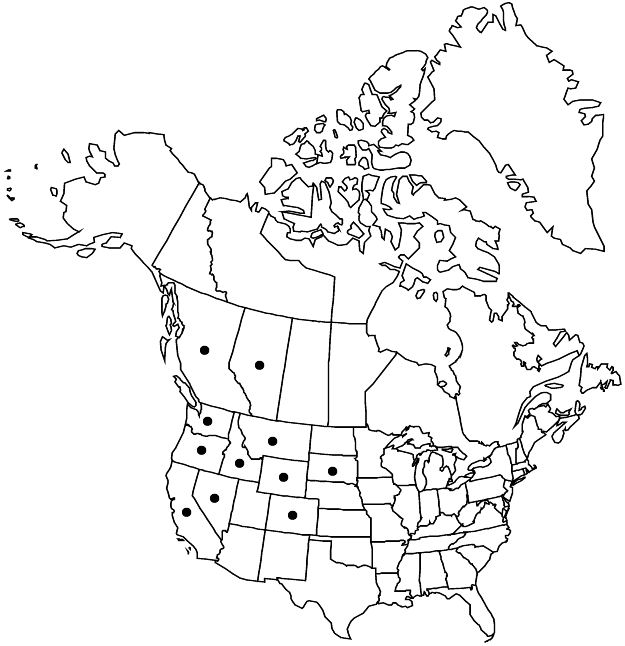Difference between revisions of "Ceanothus velutinus var. velutinus"
FNA>Volume Importer |
imported>Volume Importer |
||
| (One intermediate revision by the same user not shown) | |||
| Line 46: | Line 46: | ||
|publication year= | |publication year= | ||
|special status=Endemic | |special status=Endemic | ||
| − | |source xml=https:// | + | |source xml=https://bitbucket.org/aafc-mbb/fna-data-curation/src/2e0870ddd59836b60bcf96646a41e87ea5a5943a/coarse_grained_fna_xml/V12/V12_584.xml |
|genus=Ceanothus | |genus=Ceanothus | ||
|subgenus=Ceanothus subg. Ceanothus | |subgenus=Ceanothus subg. Ceanothus | ||
Latest revision as of 19:16, 5 November 2020
Shrubs, 1–3 m. Leaf blades: abaxial surface velvety puberulent, especially on veins. Capsules: valves smooth. 2n = 24.
Phenology: Flowering May–Aug.
Habitat: Open sites, rocky slopes, montane chaparral, conifer forests.
Elevation: 400–3400 m.
Distribution

Alta., B.C., Calif., Colo., Idaho, Mont., Nev., Oreg., S.Dak., Wash., Wyo.
Discussion
Putative hybrids between var. velutinus and Ceanothus cordulatus, reported from the Klamath Mountains, the southern Cascade Range, and the Sierra Nevada, have been called C. ×lorenzenii (Jepson) McMinn. Putative hybrids between C. velutinus var. velutinus and C. prostratus (subg. Cerastes) and named C. ×rugosus Greene have been reported from northeastern California (H. McMinn 1944). Ceanothus ×rugosus, with spreading stems, opposite leaves, and wartlike, semipersistent stipules, is notable in being one of few intersubgeneric hybrids in Ceanothus.
Selected References
None.